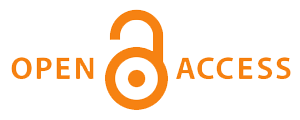Reflection of practices of compliance auditing on the quality of accounting information disclosed in the financial statements
DOI:
https://doi.org/10.34093/7t7q1302Keywords:
Audit, Compliance audit, Accounting information, Quality of accounting information, Compliance monitor, Audit risks, Users of accounting informationAbstract
The research aims to demonstrate the role that compliance auditing practices can play in verifying the compliance of the entity subject to audit with a set of rules, standards, laws and legislation on the quality of accounting information. It also addressed the concept of compliance auditing as one of the branches of auditing that focuses on verifying the compliance of institutions with laws, standards and regulations, and its role in enhancing transparency and credibility and improving the quality of accounting information. In order to achieve the objectives of the research, it was based on the hypothesis that the correct and proper application of compliance auditing by audit committees can reflect a set of benefits, including expressing a neutral professional opinion on ensuring the level of quality of accounting information for entities subject to auditing that meets the requirements of a wide range of its users. The research problem was embodied through a set of questions, including (Does adherence to compliance auditing practices affect ensuring a certain level of quality of accounting information for entities subject to auditing, especially in an environment where the importance of transparency and financial accountability is increasing?). In order to achieve the objectives of the research and test its hypothesis, the study adopted the descriptive analytical approach by constructing and formulating an examination form that was distributed to the study sample. Consisting of a group of auditors, compliance monitors and financial accountants working in the banking sector, and then analyzing the study data through the use of a number of statistical means and methods. After the intellectual and applied framework crystallized, the research concluded with a set of conclusions, the most important of which is that there is a role for compliance auditing in enhancing the quality and credibility of accounting information, as it reduces cases of manipulation and fraud by verifying that financial operations conform to the approved standards, thus contributing to building trust between investors and the banking sector, which is positively reflected in bank investments. The research summarized a set of recommendations, the most important of which is the need to establish specialized committees within banks to supervise the implementation of governance and follow up on the application of compliance principles effectively and the need to comply with international accounting and financial reporting standards when preparing financial statements, which enhances disclosure practices and the provision of detailed and accurate financial reports and the continuous assessment of the extent of banks' compliance with laws and standards, the application of effective internal control systems, and the development of proactive plans to avoid financial and legal risks associated with non-compliance.
Downloads
Published
Issue
Section
License
The copyright is transferred to the journal when the researcher is notified of the acceptance of his research submitted for publication in the journal.


